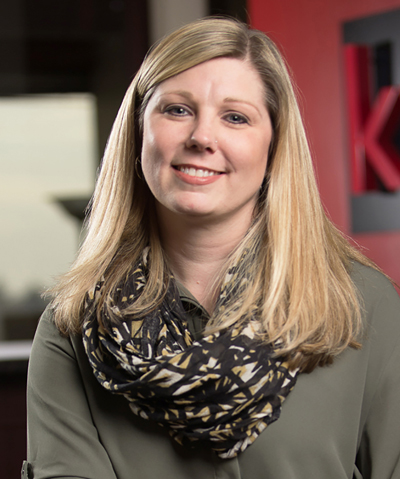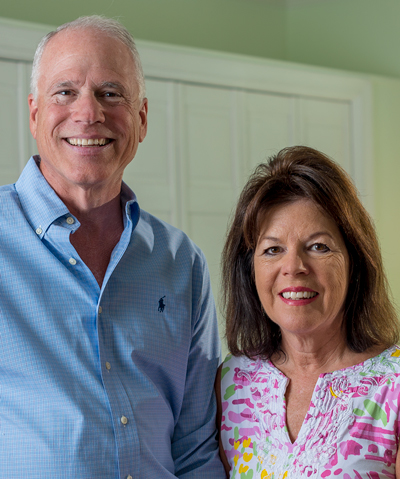You know how you go the extra mile for your clients—running a quick vacuum before a showing, bringing in flowers or even your own furniture to create that wow factor, wearing out your tire treads to find someone the perfect home. That’s because you’re taking your clients’ dreams seriously.
But even as you help your clients with their plans, are you thinking about yours? What about that ultimate plan-ahead task, your own retirement? Without an employer-based 401(k) or pension set up for you, your long-term financial wellness is fully on your shoulders—and it can be a daunting responsibility.
Financial planner Tad Cook, who specializes in serving real estate clients at @Financial in Chicago, says that a quick rule of thumb is to set aside 25 to 35 percent of your gross income for taxes; save 10 percent for retirement; and then base your working budget on the remaining 65 percent.
But this is a key point to remember: Retirement plans are not a one-size-fits-all proposition. “It really all depends on the volume of business you have and how aggressively you want to pursue a program,” Cook says. “We have to look at the whole financial picture—and age comes into it.”
Here are stories of three individuals at different ages and stages of their careers. What you learn about their situations and solutions may help you come up with your own set of strategies.
How to face down inflation

The plan for the kids, in fact, is pretty well developed: Alison’s young family recently moved from Chicago to the suburbs, but instead of selling their condo when they bought their single-family home, they decided to refinance the condo on a 15-year note and turn it into a rental. It will be paid off when the kids are ready for college. The plan is to sell it at that time to generate funds for the children’s college. At least that’s the thinking so far.
Cook strongly endorses the Parker family’s decision to hold on to their first property, but instead of tapping it for college funding, that second property makes more sense as a retirement vehicle. “Income is so much the key to retirement,” says Cook, “and inflation is an issue.” Because the cost of living is always rising, you can expect living expenses to increase during your retirement. If all your assets are in a fund, you would need to take more money out to meet rising costs. “But with a rental,” Cook says, “you can raise the rent every year and fight inflation.” Cook says real estate agents who have investments in two or three homes have the easiest retirement planning, so there’s no time like the present to get something in place. And even while many practitioners are advising clients about investment opportunities in real estate, a majority haven’t heeded that wisdom themselves. Only about 30 percent of REALTORS® currently own investment property, according to the latest Member Profile by the National Association of REALTORS®.
If you’re looking to set aside money for college, Cook says investments in a 529 college savings plan are recommended since they grow tax-free, at an average of 6 percent, which may be more favorable than real estate values, which tend to increase at an average rate of 3 percent a year. Of course, as a caveat, he adds that performance of any asset can vary. Another cautionary note from Cook: Don’t pay for your kids’ education out of your retirement fund. “That doesn’t work well for anyone,” he says. Think about it: Most kids would rather pay off their student loans than support you in your old age. And, if for some reason you do have to take funds out of a 401(k), Cook advises that you replace it as soon as possible.
How to sock it away

The Matteses may have been late starters, but they made other investments along the way, now owning eight properties, most of them in the Reading area. “It’s perfect for self-employed agents to acquire properties with 10 percent down,” he says. Mattes purchased his properties with conventional 30-year mortgages, then gradually converted to 15- or 20-year notes. The properties will be paid off as the couple moves into their 60s. “Now I’ll have an asset sitting there that I could cash in, or will have rental income that should provide a decent quality of life.”
Mattes acknowledges that the advice to put money away for retirement was always out there, at the fringes of his awareness. “You know the whole time you need to do it,” he says. His brokerage even encouraged people to make retirement planning a priority by providing contacts and programs for agents and staff. “Our office is very proactive about making tools available to us. They bring people in from outside—accounting firms, financial advisers. They make it easy for us to put a percentage of our income into various accounts.”
Mattes himself now relies on his accountant and financial planner to guide him with his savings program. “They were referred to me by someone I trust,” he says.
But real estate pros should be sure they understand whose best interest their financial counselor is committed to. The Trump administration in February sought to delay the Obama-era “fiduciary rule” that was slated to take effect in April and would require investment advisers to disclose whether they had a commission-based payment structure that favored their own financial gain over their clients’ interests. Cook from @Financial says it’s important to inquire about how investment advisers are paid for their work with you. “First and foremost, ask about fees, which can involve commission, startup costs, ratios, percentages, or other management expenses,” he says. If you’re getting advice from stockbrokers paid on commission, their greater loyalty may be to their brokerage and its products rather than you. Independent financial planners are paid directly by clients, so their interests are not aligned with any particular investment product or brand.
The important point, Cook says, is that the earlier you start saving, the more you earn over the long term. In fact, when you start saving matters more than how much you save, because of the power of compound interest. Mattes finds he must now put away three times as much each month as he would have if he had started years ago. “So I’m taking the complete opposite approach with my son, who’s 26,” he says. Mattes is strongly encouraging his son to start putting money away in a retirement fund—and he is matching those contributions for him.
How to be a serial investor

For decades, Wayne has been a religious tracker of the family’s income and expenses. He could tell you what he made and spent in any given year, going back to the 1990s. “In ninth grade, a Ouija board said I was going to live to 86,” he says wryly, “so that’s what I’m planning for.”
He and Teresa made many real estate investments, over the years. The first house they bought was in Boca Raton, Fla., in 1978. They paid $37,500 for it, and when they moved, instead of selling it, they decided to make it a rental. They finally sold the house for $185,000 in 2016—but more important than the appreciation was that in the interval, it generated more than $300,000 in income for them.
Over the years the Reuters bought and sold about 30 other properties in Illinois, owning usually about five at a time. They bought them, rented them, managed them, paid them off, then sold them.
“If you’re in real estate,” Wayne says, “you know what a good deal is.” His advice: “Get one investment property and see if you like being a landlord.” Some people find it a headache, but not the Reuters. “Managing a property and being a landlord is similar to managing people,” he says. They communicated carefully with their tenants, striving for flexibility and honesty. “And the good thing about being a landlord is that you can delegate tasks (for a fee).”
But real estate was not the Reuters’ only investment. They always saved. “You can start with saving 1 percent of each commission in year one and increase that amount in each subsequent year, but get in the habit of saving and every year putting money into your retirement accounts.”
Not everyone has this kind of discipline, and according to Cook, age 50 seems to be the magic number that kicks people into gear. “If a real estate professional has not done a lot of savings in their 20s, 30s, or 40s,” he says, “then in their 50s, that’s when people wake up to fact they need to be saving aggressively for retirement. At this point, the Solo 401(k) is often the vehicle that we use.” That’s because the higher contribution limits can help you do your best to make up for lost time. Or you can split your contributions between types of accounts, deductible and nondeductible. Find a certified public accountant or financial planner you trust who can advise you. The best retirement advice is to practice smart money management—the rules you’ve always heard about. Says Reuter, “Spend less than you make, pay off your credit card balance each month, try to keep three to six months of cash on hand for emergencies and the months you don’t make enough, plan your taxes ahead, and make your quarterly payments. And put away 10 percent every year.”
And own real estate. “Once you get your short-term expenses under control, you should have a property. There’s nothing like having someone else to pay the mortgage.”
Reuter makes it sound easy, and of course it isn’t for everyone. So if you feel overwhelmed at the prospect, it might help to remember that adage about how to get a big tree in your yard:
The best day to plant a tree is 20 years ago. But the second-best day is today.



